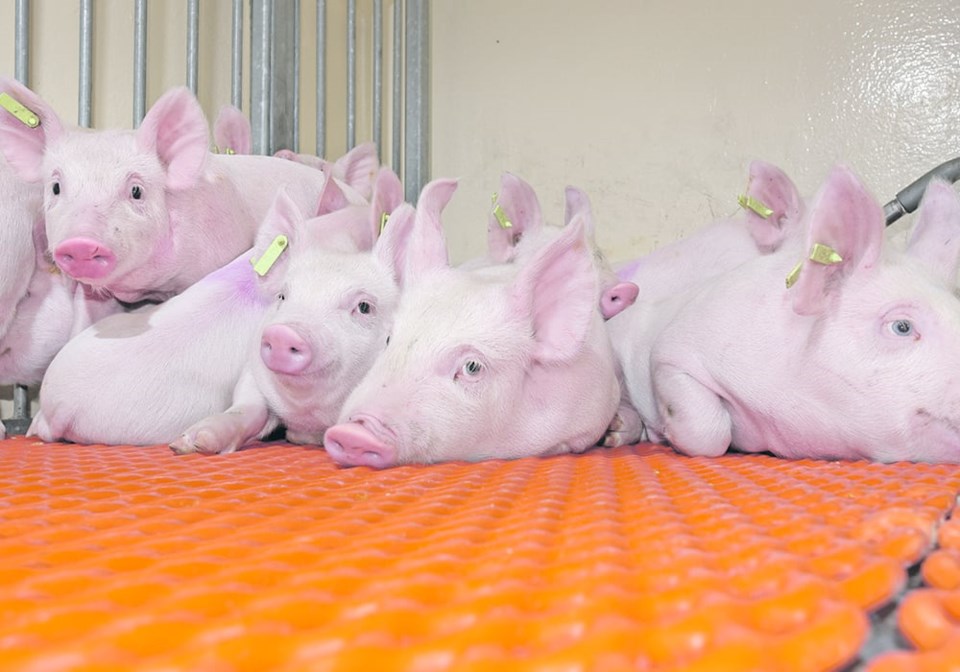WESTERN PRODUCER – Pork producers must educate consumers about issues such as animal welfare and environmental sustainability, said an expert on global market research and forecasting at the Banff Pork Seminar.
“We always say, ‘no, you’re wrong and here’s why, and we’re going to produce it (this) way,’ ” said Brett Stuart, president of Global AgriTrends based in Denver, Colo.
“So, the big debate right now is do customers get to decide what they want? And Econ 101 or Marketing 101 tells you, yes, the customer is always right because the customer is a guy with money in his hands and so, yes, we do have to bow to customer pressure.”
However, producers also need to ensure consumers are better informed about the positive conditions within the industry, “which is much harder than we think,” he said. “But yeah, we’re going to continue to be under consumer pressure. We’re going to be continually under legislative pressure.”
Stuart was one of the speakers Jan. 11 at the three-day Banff Pork Seminar.
It was attended by about 725 delegates ranging from Canada and the United States to Europe, said Dan Bussieres, chair of the seminar’s advisory committee.
“Sustainability is a common theme in our society,” he told the delegates. “We hear about it every day: climate change, global warming. It’s on every newspaper and TV show, and agriculture doesn’t escape that as well.”
Farmers are often blamed for being polluters, he said.
“Although we do a bit of pollution, it’s normal. We raise animals — it’s not as bad as what people think and what they say.”
However, the pork industry needs to face changing perceptions about sustainability, he said.
“Although sometimes the customer demands that we are facing may seem not reasonable for our industry, we started to listen to those people and make it work because that’s the people that buy our product and make us (able to do) what we do day after day.”
He said pork producers require fewer inputs for their operations than they did in the past, making them more efficient and sustainable.
However, farmers must also balance environmental sustainability with the need to be economically viable, said Bussieres. “We need to make money and the whole industry, producer, packer, we need to be all together on that point,” he said.
“Since 2020, we have had a lot of challenges: COVID came, the labour issue — we all know about that — the feed price has been really, really high and we don’t see that that’s going down.… The pig price was good in 2022, but still, it was tough to make money for a certain period of the year, and the packing industry lost a lot of money in Canada. It’s been tough — it’s still tough.”
He acknowledged it’s not always easy to work together.
“We need to do a better job and try to have a more balanced industry that is generally profitable.”
The rising threat of African swine fever partly prompted Alberta Pork to pass a resolution Nov. 24 to create an extra levy of five cents per hog to strengthen lobbying of Ottawa by the Canadian Pork Council.
The five-year levy will only go into effect if other provincial pork organizations commit to a similar amount. It aims to boost the CPC’s ability to pressure the federal government to create safety net programs for pig farmers in case of an outbreak of ASF in Canada.
Bussieres said in an interview he was unaware of the resolution, but he agreed that federal action is needed for ASF. About 70 percent of the pork produced in Canada.




